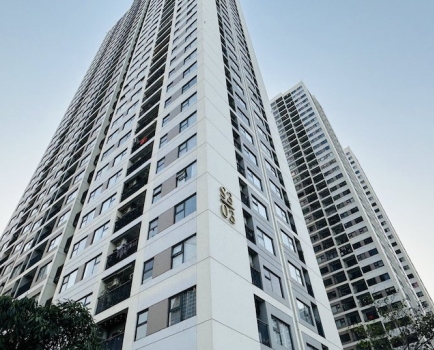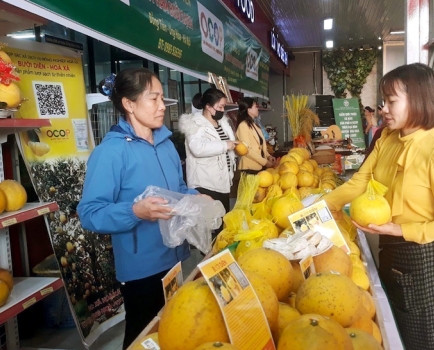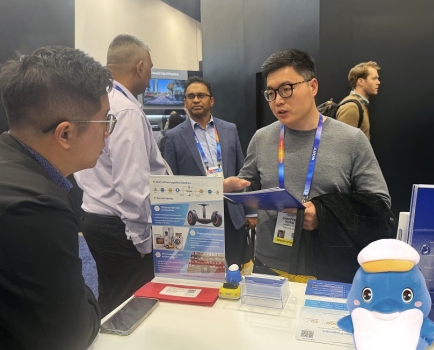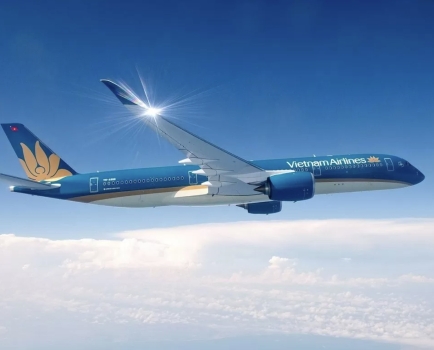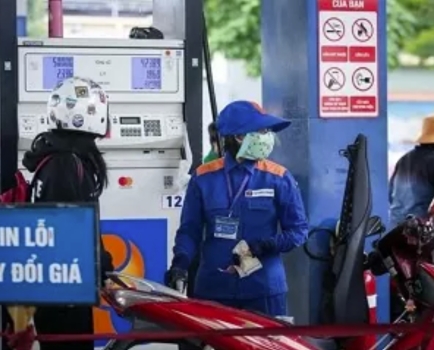A recommendation on a proposal for visa exemption policy for international tourists coming to Vietnam
Wed, 18 Apr 2018 16:29:00 | Print | Email Share:
Name of recommendations: A recommendation on a proposal for visa exemption policy for international tourists coming to Vietnam
Status: Has not been responded
Recommended by units: The Tourism Advisory Council
Official letter: No 0874/PTM - VP, dated: 2018-03-19
Recommended contents:
The Tourism Advisory Council is an association of prestigious stakeholders in the Vietnamese tourism industry. The role of the Tourism Advisory Council is to support the development of Vietnam's tourism industry in an environmentally sustainable way and to help achieve the country's tourism development goals. We extend our best regards to you and to the Government’s Office.
In the past two years, Vietnam has made impressive progress in implementing a number of initiatives to promote the tourism sector - programs that have contributed to significant growth with our welcome of 13 millions international visitors and is firming towards to achieve its goals for 2020 and coming years.
In the extremely strong growth of international arrivals, the number of Chinese and Korean tourists accounted for more than 50% of the total number of international arrivals and the average stay of these two country’s visitors is below 10 days with an average spending less than 900 US dollars per person. Meanwhile, tourists from Europe staying on average 15 days or longer and the average direct spending of each visitor is between $1,400 and $1,600. Long-distance tourists from North America, Australia and New Zealand also have similar characteristics to European tourists - that is staying longer and spending more.
There are some potential shortcomings in the growth of the tourism industry due to infrastructure constraints, especially the capacity of airports and airlines, as well as human resources, We need to try to change the structure of international tourists to move towards higher-paying markets such as these three markets, alongside the five European countries that have been granted visa exemption in 2016 and the rest of Europe. The Resolution No. 08-NQ / TW has determined that by 2020, the tourism industry will have to achieve the goal of receiving about 18.5 million international tourists with export value through tourism is 20 billions US dollar. This means that we need to gradually increase the average direct visitor’ spending from $860 (2016 figures) to $1,080. The simplest way to achieve this goal is to have a policy of support and openness towards tourists from high paying markets.
Therefore, the Council believes that there is a strong argument for extending the visa exemption for citizens of five European countries as well as increasing the visa exemption period to 30 days instead of 15 days, in order to give favorable conditions for both business tourists and general tourists. Since having the visa exemption policy, the average annual growth rate of visitors from these countries has increased by more than 20%. In order to create better conditions for the tourism industry to plan and promote the market, we continue to recommend the extension of this visa exemption for five years without reviewing annually. In addition, we found no benefits or values in restricting the return of tourists to Vietnam within 30 days, and this barrier should be removed to encourage tourists to travel by air and select Vietnam as a hub for flights to Europe and Australia. In addition, this clearly supports the implementation of the Prime Minister's Decision No. 236 / QD-TTg dated 23 February 2018 of the Government’s Prime Minister approving the readjustment of the Master Plan for Transport Development to 2020 and the orientation to 2030. We strongly recommend that it needs to have a transit Visa system maximum is 72 hours to encourage visitors to stay in the Ho Chi Minh City or Hanoi and be experienced a bit of Vietnam in their journey. In many cases, this often results that tourists returning to travel longer. This is a great opportunity that we need to grasp because the medium-term benefits can be substantial.
While the application of an Electronic Visa (E-Visa) is an important step that we welcome, there are a number of issues that can easily be addressed to improve access to this service. It (1) needs upgrading websites and access speed because there are many cases, the session expires while the customer is trying to access. (2) Access from multiple domains cause ambiguity, confused the tourist market and facilitated agents to profit from this confusion by charging extra service charges. The domain name "evisa.xuatnhapcanh.gov.vn" should be changed to "evisa.gov.vn" to avoid confusion and clarify that this is a government service. (3) We also recommend adding 4 countries / E-Visa territories, including Taiwan, Hong Kong, Switzerland and Belgium.
We firmly believe that Vietnam can achieve the goal of welcoming 20 million international tourists by 2020 and in the long run could overtake Thailand as a tourism destination.
The World Tourism and Travel Council (WTTC) affirms that Travel and Tourism is a force for economic development through a wide variety of channels. The WTTC has consistently stated that visa facilitation will increase from 8 to 10 per cent of arrivals and we see this in practice when the visa exemption policy is applied to public The population of five European countries and the number of tourists in these countries has increased by an average of nearly 20%. Specially:
- A thriving tourism and travel industry can enhance access to international markets, strengthen business relationships and increase trade opportunities;
- • Increased connectivity with Tourism and Travel can promote domestic and foreign direct investment and increase the attractiveness of an area as a place to locate the head office, a distribution or a production center;
- Investments in public and private infrastructure, such as the construction of roads, bridges and air transportation, bringing benefits to all economic sectors as well as to households;
- • Travel and Tourism supports economic development through interdisciplinary links, revenues and the preservation of cultural heritage.
The council said it was absolutely right to say that Vietnam has had some of these benefits, particularly as a result of strong growth next year compared to the previous year we saw. in the last 2 years.
Immigration policy is one of the government's policies that have the greatest impact on international tourism flows. In order to improve competitiveness and attract foreign direct investment and international visitors’ flows, many countries are stepping up visa exemption to gain a competitive advantage in the market. This is especially true in the Asia-Pacific region where each country, such as Singapore, Malaysia, Indonesia and the Philippines, Exit visa exemptions for more than 160 countries, although not all of them implement bilateral visa exemptions. Indonesia has only visa exemptions from 57 countries and the same number for the Philippines is 61. However, both countries recognize the significant benefits of facilitating visa issuance in a highly competitive market. Thailand also enjoys visa exemptions from 46 countries while it exempts visas for 57 countries. It is convenient for issuing visas in a competitive market. Thailand also enjoys visa exemptions from 46 countries while it exempts visas for 57 countries.
In 2017, the World Economic Forum announced Vietnam ranked 116/136 countries and reached 17/100 when measuring visa requirements. In the ASEAN region, Vietnam ranks lowest with only 24 visa-exempt countries (except Cambodia, Laos, and Myanmar; visas at the border are very effective). In addition, while tourists are usually exempt from visas within 30 days, Vietnam maintains visa exemptions for travelers in just 15 days and does not allow travelers who have been visa-free to return within 30 days.
When considering visa exemptions, it is important to note that we are not referring to travelers who often plan ahead for their trip, although short trips are also planned as unexpectedly as golf tours for example, but we are talking about business travelers who are usually required to make the trip in time. So, one can argue that it only takes three days to have an electronic visa, but in some cases, two days are too long.
Vietnam could enjoy greatly benefits from the expansion of visa exemption to develope Western countries such as Canada, Australia, New Zealand, Switzerland, the Netherlands and Belgium. The WTTC estimates that visa’s facilitation will increase the number of visitors from 5 to 25% (as demonstrated by the growth in visitors from the five European countries that are visa-free). The description in Appendix 1 clearly shows that direct revenue has increased by $ 101 million - much higher than the $ 17 million in lost visa fees. It is noteworthy that the economy can triple the direct revenue from tourism, so our country will benefit greatly with this visa exemption policy.
There is, of course, the argument that the electronic visa’s tools will make it easier for all visa applicants and thus reduce the need for visa exemption. However, in our view, this is a short-sighted approach and only benefits those who have particular interests in minimizing the number of visa-exempt states. There is a much evidence that the WTTC confirms that visas, even e-visas, reduce the number of potential tourists for a variety of reasons.
As for ordinary travelers, more and more travelers are coming from higher spending countries thanks to the growth of the internet, cheap airlines, solutions of the shared economy model and smartphones, travelers often make reservations online for their trips rather than through travel agents. They also enjoy instant bookings and are more likely to choose destinations at affordable prices and do not require entry visas.
For businesspeople, it is "complicated" to apply for visas, even online, when they may be on a mission and decide or be required to add Vietnam to their journey. In some cases, they only know about the requirements for entry visas when they try on board of a flight to Vietnam and are denied when checking-in on board.
For travelers, especially families, registering for a visa online is costly because of the cost of obtaining a visa for a family of four, equivalent to the cost of one or two nights of stay in destinations such as Thailand, Malaysia, Cambodia or Laos.
If this is not the obstacle for tourists to Vietnam first time, it certainly does not encourage visitors to return. They may choose to return or visit other destinations that are visa-free.
With the growing concern about data security, many potential tourists, especially older generations - who nowadays travel more and have higher after-tax incomes, concern about data security and credit cards can encourage them to be granted visa or visa exempt status.
The Tourism Advisory Council of Vietnam is on the right trend with our tourism development policies. Regarding the issue of visa, we are convinced that the visa exemption policy should be improved along with electronic visas and visa granting at the border and NOT replace the visa exemption policy in other forms. We believe that our proposal is justified and reasonable and does not adversely affect Vietnam's security. Although the revenue from visa fees has been reduced, it is our recommendation that will increase the total domestic expenditures to a much greater extent than the loss of visa fees as can be seen. As a result of visa exemption for 5 European countries. This will bring economic growth, jobs and prosperity to our communities.
Responded by units: The Ministry of Foreign Affair
Official letter: , dated:
Responded contents:
---------------------------------------------
Same category News :
Other news :



